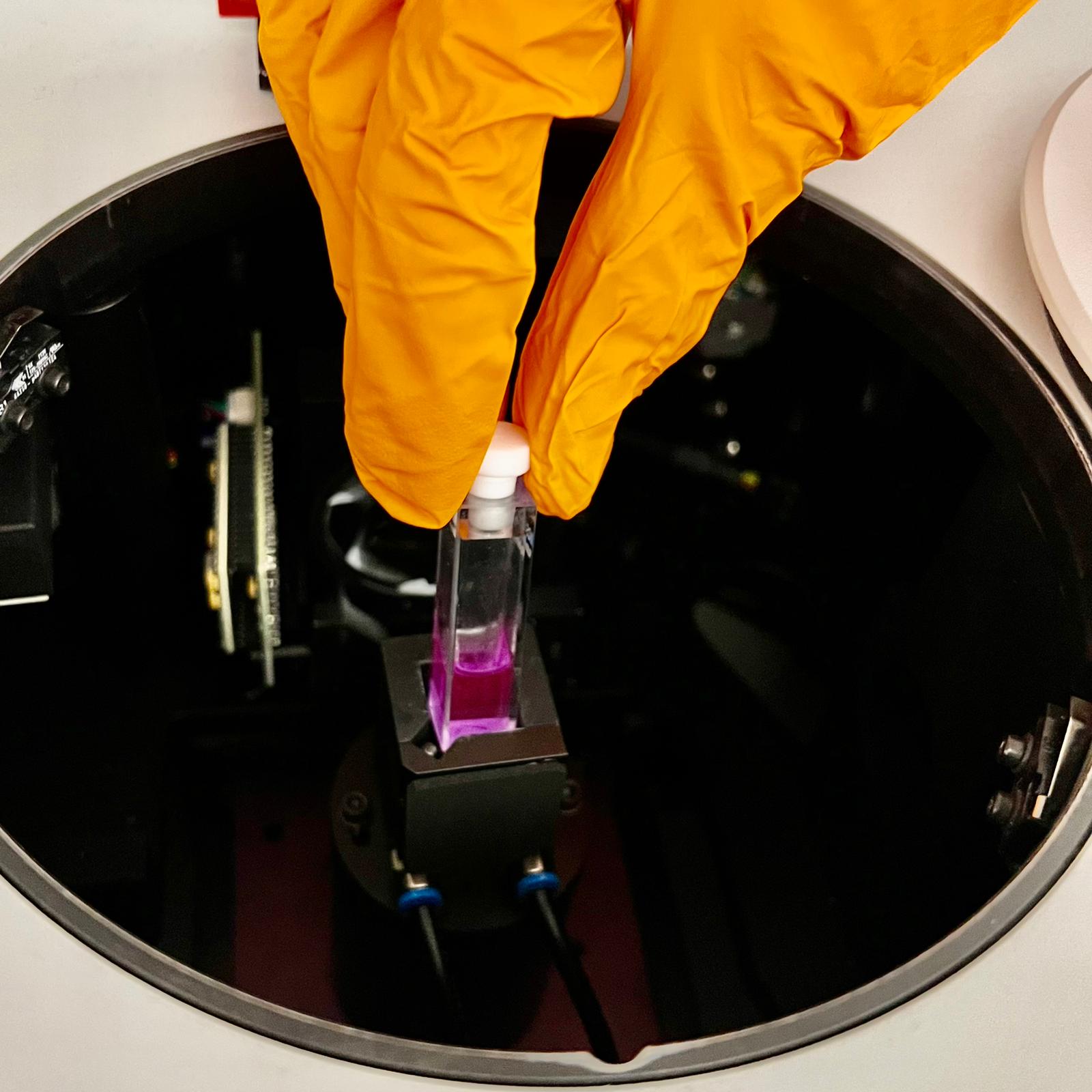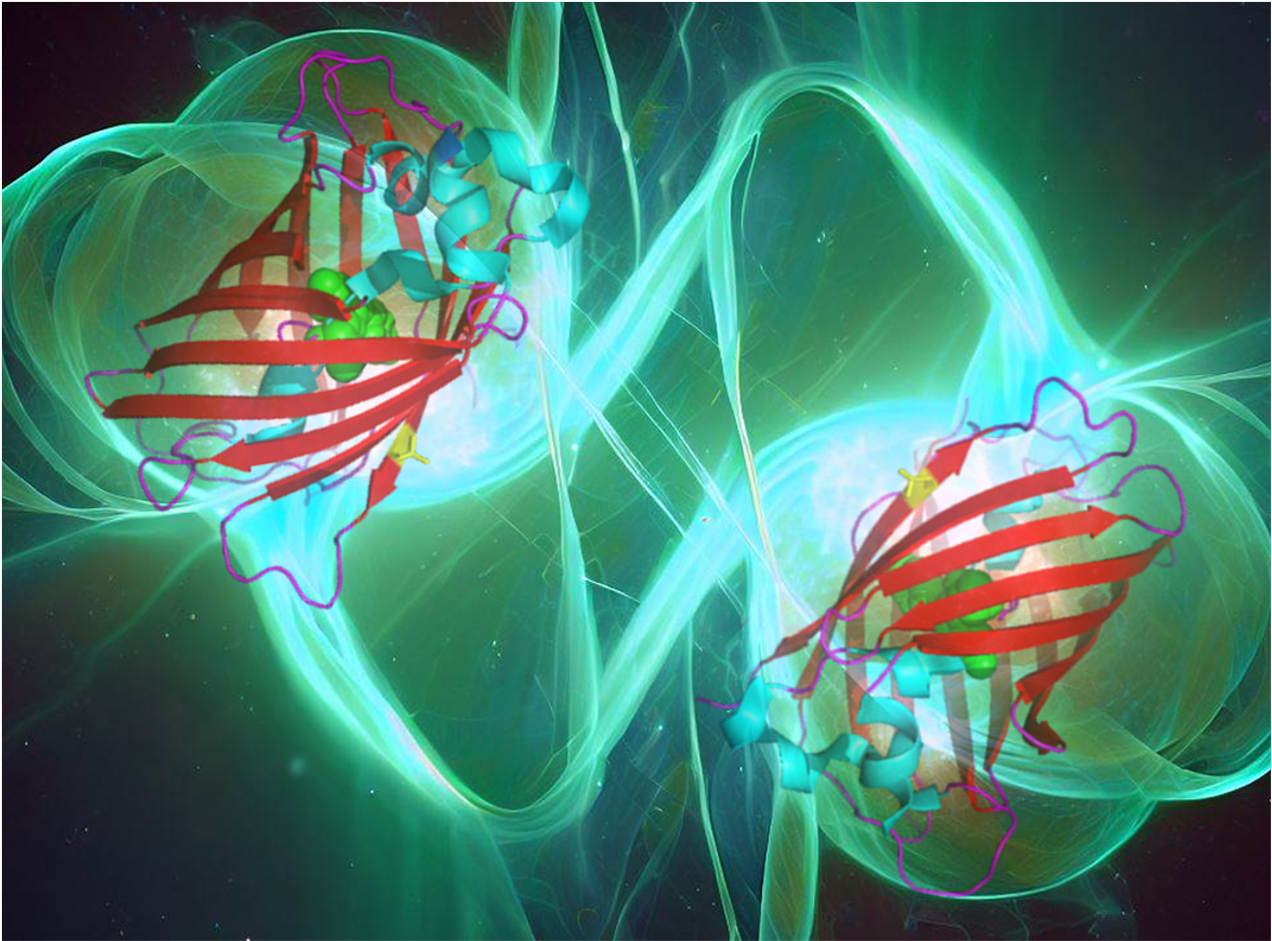


Mounting evidence suggests that quantum mechanics might play a pivotal role in biological processes, such as enzymes, photosynthesis, magnetoreception, and electron spin dependent chemical reactions in biology. This captivating area, known as Quantum Biology, has recently blossomed into a vibrant field generating much interest.
Recent work by Kim et al. (Biophysical Journal, 2019) demonstrated room-temperature exciton coupling in dimerized fluorescent proteins. This groundbreaking observation opens doors to new systematic approaches for exploring quantum phenomena in living systems under physiological conditions.
The ability to observe these intriguing quantum effects without cryogenic temperatures unlocks thrilling avenues that lead a new generation of bio-quantum technologies, including cost-effective quantum computers and powerful biosensors harnessing quantum behavior.
Driven by a curiosity to unlock the mysteries of life, we delve into the uncharted frontiers of Quantum Biology . We aim to understand how evolution has sculpted intricate natural systems to harness the power of quantum phenomena like superposition and entanglement in warm, wet, and noisy biological environments. We wield a precise toolkit: molecular biology to dissect the key biomolecules, ultrafast spectroscopy to witness the fleeting dance of quantum states, and quantum optics to delicately interact with and probe these enigmatic processes.
By deciphering this quantum blueprint in nature, we hope not only to rewrite our understanding of life's origins but also to unlock unprecedented technological possibilities towards quantum biotechnology.
Quantum Biosensing
Quantum sensing promises unprecedented sensitivity in measuring physical quantities through the enigmatic properties of quantum mechanics. This opens doors to exploring fascinating questions in biophysics and biology, where quantum effects may play a role, a field known as quantum biology. However, current quantum sensing technologies often require extreme laboratory conditions like cryogenic temperatures or vacuum, incompatible with life itself.
Here, we present a revolutionary approach: quantum sensing based on fluorescent proteins. This approach eliminates the need for extreme environments and cumbersome setups. Instetad, it leverages the unique properties of fluorescent proteins, naturally compatible with biological systems. This opens exciting possibilities for studying living organisms at the biomolecular level.
Our strategy hinges on characterising the strongly coupled molecular interactions between fluorescent proteins. These interactions likely exhibit quantum phenomena (i.e. exciton coupling), forming the basis for our novel biosensing technique. By harnessing the power of quantum mechanics and the versatility of fluorescent proteins, we aim to unlock a new era of biosensing. This will enable us to delve deeper into the mysteries of life, potentially revolutionising our understanding of fundamental biological processes, and paving the way for novel diagnostic and therapeutic applications in medicine.
Our research leverages the power of light to engineer novel biosensors and real-time imaging tools. By employing cutting-edge techniques like genetically-encoded biosensors in conjunction with fluorescence lifetime microscopy imaging and label-free microscopy (e.g. quantitative phase imaging and optical diffraction tomography), we aim to decode the biophysical signatures of diseases with unparalleled precision. This will pave the way for the development of highly sensitive diagnostic platforms and targeted therapeutic interventions, ultimately leading to improved patient outcomes.
created with
Website Builder Software .